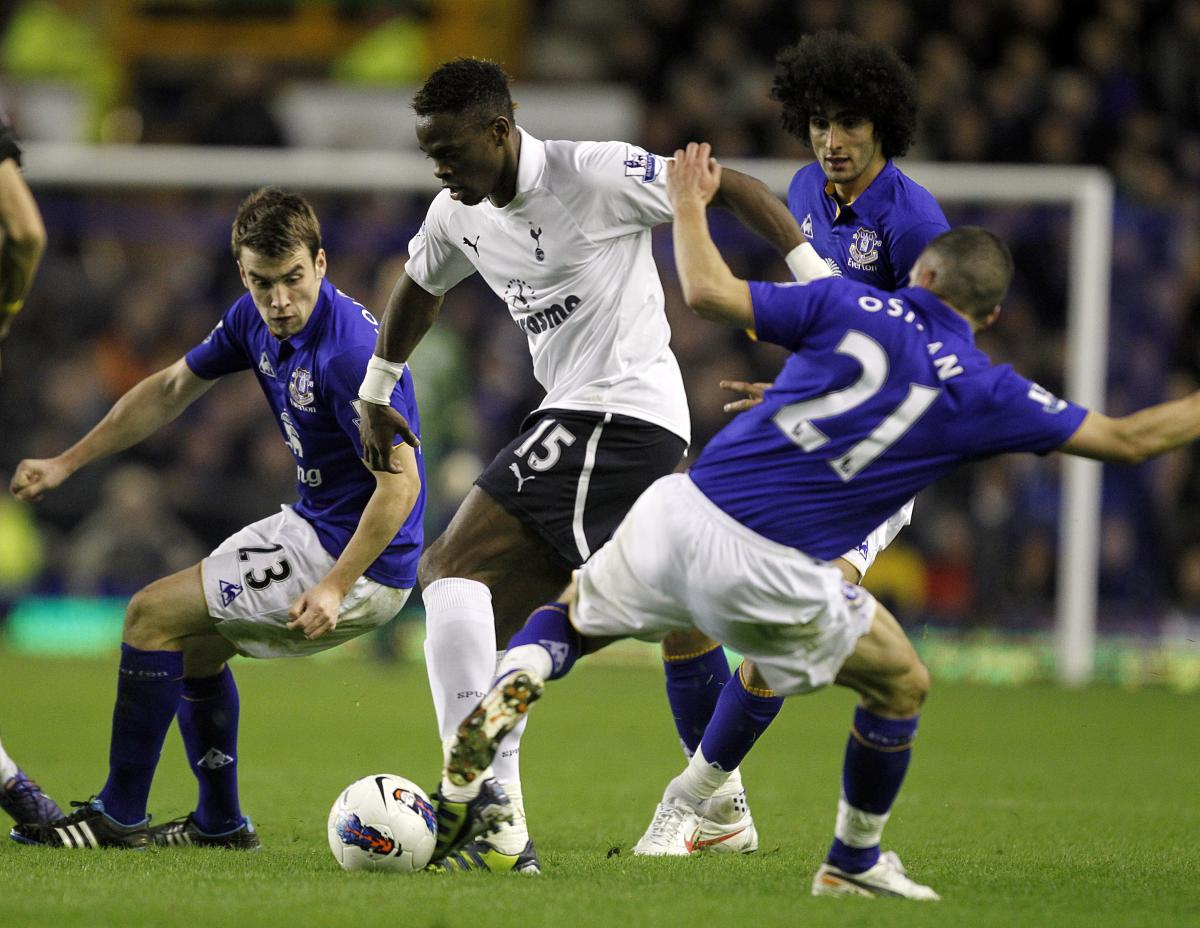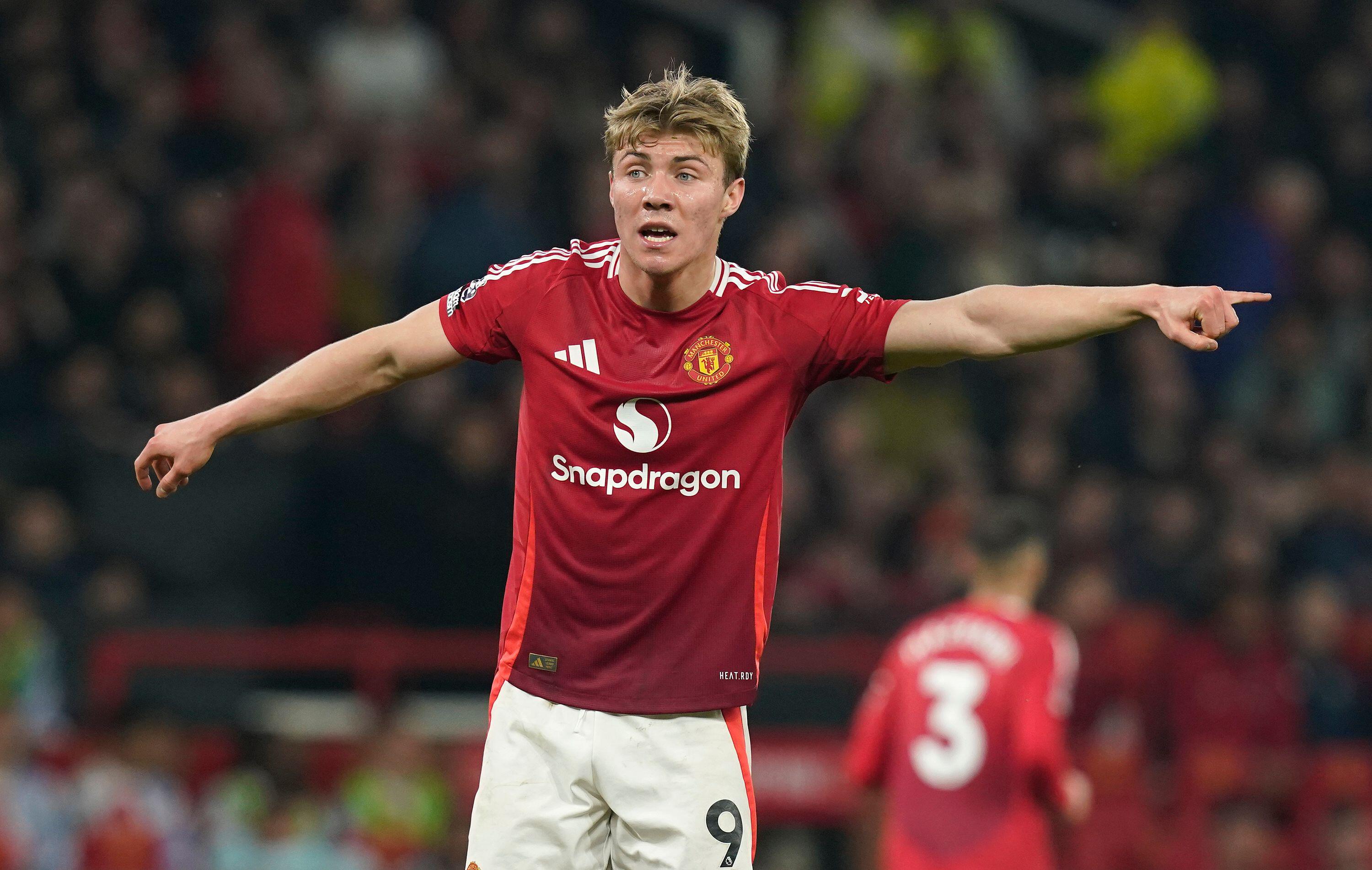Louis Saha: Q&A
"I stopped writing because my missus dropped some coffee on the computer and I lost 80 pages!"

Why did you decide to write your new book, Thinking Inside the Box?
There are a few reasons. Maybe the first few lines [of the book] started after the [2008 Champions League] final that I missed with Manchester United. I decided to give a bit more impression and emotion to players whose natural instinct is to always be arrogant. I just wanted to show that we [players] are normal people with emotions so that was my first target. Then after, I was confronted with my brother who wanted to be a footballer as well. So I said, let’s try something to help the youngsters, and to help him, and I just found myself going through a process of trying to give more and more information. I started to put a lot of subject [in the book]. It was good – I ended up really enjoying it.
How long did it take to write the book?
It ended up taking four years. What I started to write was something like a guide. Then after, people started to give me advice and said you should talk about your life as well. So, I ended up writing and writing and it took long. For maybe one-and-a-half years, I stopped writing because my missus dropped some coffee on the computer and I lost 80 pages! From that point, I was gutted and I said leave it. For one year, I put it on the side. For some reason, I ended up reading it again and I said let’s do it.
It’s unusual for a football player to write their autobiography completely by themselves. Why did you write the book yourself and not have it written by someone else? What was the decision behind that?
First, it was like therapy. I wanted to write down my emotions so that my brother could understand. I thought it could be interesting for other players to know [more about my experiences]. So then I involved other players and it was long to write. But at the same time, from the point where I involved other players, I really wanted to make it spot on and make sure that it didn’t drag to a new objective of putting some subject where it is controversial and people talk about it. No, the aim was not to make it like most of the autobiographies, which always say something bad about someone else. That was not my aim. I just tried to protect the people who were involved in my book and show that the aim is to help, not to destroy.
Did you get inspiration from other footballers’ autobiographies?
Yes. I did [read autobiographies before] but maybe just a few. It was speed-reading. I wouldn’t say I know all about them. I had to inform myself and make sure that I knew what it was for. I don’t enjoy talking about myself so that’s why I think the book is a bit different.
What’s the best player autobiography that you’ve read?
I would say - because I know him - Nicolas Anelka’s book. As well, Didier Drogba, and for some reason, I ended up reading the Pelé book. It was an inspiration. I always like looking for big stories. I also ended up reading a few pages of [Paul] Gascoigne’s book as well. It’s more about what they achieved - that’s what inspires me.
In your book, you’ve interviewed a number of people. Normally it’s you as a player who is interviewed by journalists. What was it like to interview players and managers almost as a journalist?
It was weird for me, in my position, to still be a player and to ask other players questions. But straight away it was open. There was no barrier. It was like a normal discussion so it was very easy to have the information that I wanted. It was clear that they trusted me in a way that they understand that I don’t want them to be in trouble. First it was hard to adjust to using the dictaphone, it was funny, but I enjoyed it. I understand a bit more about how hard it is to get information and to get something new and something interesting – it’s not easy.
Were you nervous about interviewing?
Not nervous, but like I said, it’s weird. It’s something I’m not comfortable with because normally I’m quite discreet and quiet and not pushy - and asking people and phoning them, it’s not my style. I had to force myself to do that though. I had to call them again and again when they didn’t respond. It was new but I enjoyed it a lot.
Get FourFourTwo Newsletter
The best features, fun and footballing quizzes, straight to your inbox every week.
Who was the most interesting person you talked to and why?
There were all interesting because they were all different and unique. But at the same time, I’ve got a lot of respect for Sir Alex Ferguson. It [the interview] was special because he is someone who has great experience and you want to ask him a thousand things. I respect him. I talked to him for 45 minutes and I was really happy with it. Patrice Evra is also very important for the book because he is quite the opposite in a way but his motive is the same: he is professional and wants to win. The way he started [his career] and the way he finished is an astonishing story.
What section of the book did you find the most interesting to write?
Obviously, there are players giving some real anecdotes and some really good advice to people and especially to young players to work on. It [the book] was a guide and something I tried to give as an example, so for me, it was really enjoyable when a player was saying something that I knew would help others. But it [the book] wasn’t just to share my own experiences like I want this or that - that was not the point. Every time I had great information about how to do things it was really easy – the expression was there. I really enjoyed it. When you speak with emotion about something that happened to you, there is no guard up. So it was really easy as well. I enjoyed writing the whole book. It’s hard work but when you are passionate about something you do it the best that you can and I done it.
What’s the reaction been like in France to the book? What kind of feedback have you received?
It’s been great. You always expect tough reviews from journalists but I haven’t had that. It’s about the respect to have written my own book because it’s not an easy job. From that, there is a respect. I had reviews saying it [the book] is very interesting so it’s a victory in itself because journalists are the hardest people to please. I’m really happy with that.
I’ve seen lots of fans tweeting you about the book saying they liked it…
Yes! When they do that, it’s like “Whoa!” It’s amazing because you know that people are tough but it’s been great. It’s going to be a challenge to have the same impact in England because it’s different because my story is a French story somewhere else. I had to adapt, a few words had to be changed, but I think the vertebrae of the book is the same.
It’s been a very interesting and exciting 2012 for you so far. How are you finding life at Tottenham? Why do you think things are going well for you so far at your new club?
It’s very good. Obviously, I don’t like to lose games so right now it’s a bit difficult. It’s been a run of big games as well. Man United, Liverpool, Arsenal and Everton, the latter of which is not an easy place to go. It’s been tough but I expect better from us. But I’ve settled in really well so that’s been great.
Why do you think you have settled in so well at Spurs?
It’s just because the way the team plays, with rhythm and freedom and it’s easy to express yourself. That’s why I really enjoy playing. It’s with so much quality and speed - it makes it, as a striker, really easy to be involved. I have a lot of opportunities [to score]. I always enjoy scoring goals and having opportunities so I’m enjoying myself.
You’ve linked up really well with Emmanuel Adebayor too…
Yeah! He’s a great partner to have. When you have [Rafael] van der Vaart, Jermain Defoe and Adebayor, you know you’ve got character and so much talent there.
Obviously, there was a lot of speculation regarding Harry Redknapp and the England managerial position. If he left Spurs, how do you think it would affect the club?
Yes, he is important. Since he joined the club, the improvement and style of play has been amazing so obviously it would have an effect because it would change the style of play - you would have to adapt to a new manager. So things like this are not easy. But I think the players will still be here [if Redknapp leaves Spurs] and the quality will be here, the ambition will be here and the desire is always here. We’ve been a bit unlucky like hitting the post and with goals disallowed. It does make it hard.
What was it like to be back with the France national team and play in an international game again?
It was great. Even if I’m 33, I felt like a kid. It’s a dream to play for your country. My first call-up was in 2004 so to be involved in the squad in 2012 is kind of an achievement in itself. I’m really pleased to still be competitive.
Do you think France can win Euro 2012?
Oh yes! All the teams in the competition can win it. It happened before. I remember Greece won it in 2004. It’s football. That’s why the sport is amazing and that’s why people watch it because it’s unpredictable. France is not a small team. For sure, we had some bad tournaments recently but I do think that the team is growing.
What about England?
The same. It’s calmer in a way. The press sometimes makes it harder from the outside but when you have that set of fans and the love for the game, they [England] should definitely be one of the best teams in the world and in Europe.
And if you go to Euro 2012, will you be looking forward to playing against England?
Yes - it’s the first game so it will be special. I always love to play international football and against England, it’s always a great history to be brought so why not?
Louis Saha’s book, Thinking Inside the Box, was released on May 1, 2012 by Vision Sports Publishing.
Interview: Vaishali Bhardwaj – March 2012
